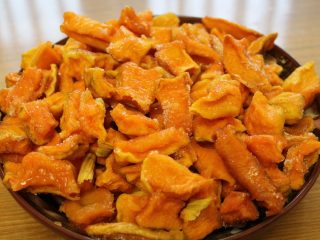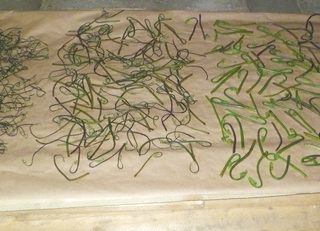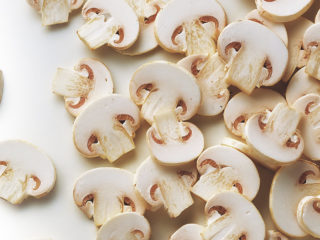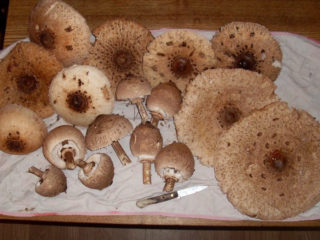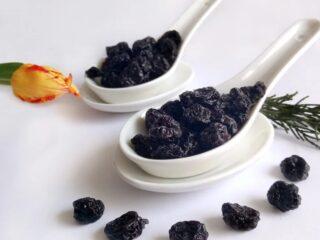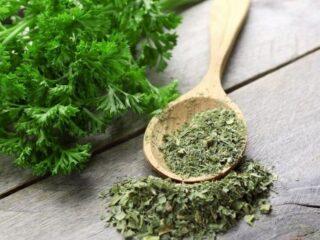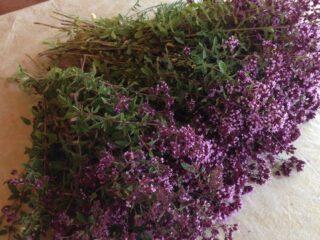Content
The unique taste and spicy aroma have made cilantro a favorite seasoning in cuisines all over the world. Few people know that it is in dried coriander (the second name of the spice) that the largest amount of useful components is preserved. There are different ways to dry cilantro and its seeds.
Benefits of dried cilantro
Thanks to its rich chemical composition and large amount of vitamins, the grass has firmly established itself on the list of healthy plants.
Cilantro (after drying) has a beneficial effect on the body:
- removes waste and toxins;
- has a general tonic effect;
- increases immunity;
- reduces nervous tension and fatigue;
- saturates blood cells with beneficial microelements;
- cleanses the walls of teeth and the oral cavity from plaque;
- prevents the formation of blood clots, cleanses blood vessels;
- helps eliminate excess fluid;
- has an antibacterial effect.
Ailments that the herb helps to cope with:
- joint pain, arthritis;
- helminths;
- hernia pain;
- nausea, diarrhea;
- fungal or bacterial infections;
- caries;
- flatulence;
- haemorrhoids;
- convulsions;
- measles.
Failure to follow the rules for storing or drying cilantro leads to general weakness, dizziness and upset stomach. Mold fungi, invisible to the human eye, develop on the leaves of the grass, which cause the disease.
Is it possible to dry cilantro for the winter?
Cilantro can be consumed after drying. This method allows you to preserve micro- and macroelements in the seasoning in almost their entire composition.
Collection and preparation for drying
Cilantro is collected for drying when the branches of the grass have reached a height of 12-15 cm. The main thing is that the coriander does not have time to throw away the umbrellas. Cilantro for drying is prepared in the morning, when the dew has disappeared, in dry weather. Grass branches are cut close to the ground.
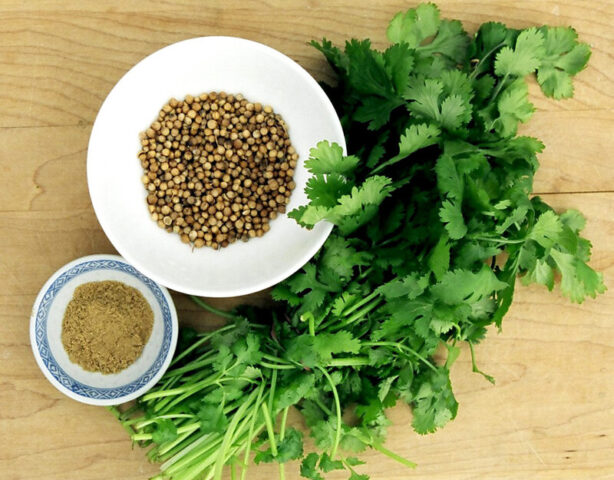
With the appearance of inflorescences, cilantro leaves become rough and begin to taste bitter
Stages of preparing the product for drying:
- Cilantro is sorted out, damaged, limp, yellowed branches are removed.
- The grass is collected in bunches, making it easier to wash. Take water into a bowl and rinse the cilantro several times. The liquid should remain clean after lowering.
- Place the cilantro on paper towels and let the water drain for 20-30 minutes. If the greens are left in the fresh air longer, the grass leaves will begin to wither.
If the cilantro has outgrown and umbrellas have appeared on it, do not be upset. Coriander seeds are also suitable for drying for the winter. They are used in the preparation of meat dishes and marinades.
How to properly dry cilantro at home
There are four ways to obtain a quality product by drying:
- in the fresh air;
- in an electric dryer;
- in the oven;
- in the microwave.
The most useful components remain in cilantro dried in a natural environment and in an electric dryer. But in the first case, dust settles on the product. When drying in an electric oven, monitor the temperature.If it is too high, it will destroy all the vitamins and microelements of the grass.
On open air
To preserve the rich color of the product, maximum useful components, aroma and taste, cilantro should not be left to dry in direct sunlight. This will turn the coriander into hay.
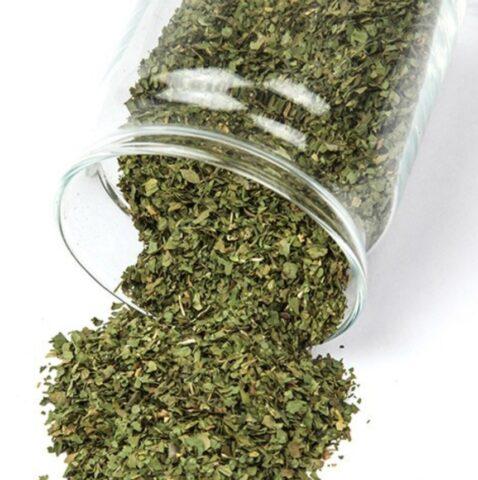
Optimal ambient temperature for obtaining high-quality raw materials is +25…+30ᵒС
Rules to follow when drying cilantro for the winter at home:
- Prepared bunches of grass are placed on thick paper or towels. They will absorb excess moisture, which evaporates during the drying process.
- As soon as the leaves of the herb begin to darken, turn the cilantro over from time to time. It is necessary to ensure that the greens dry evenly.
- When the bunches of cilantro have evenly withered and acquired an even bottle-green color, they are hung so that air circulates freely between the bunches.
In an electric dryer
You can dry cilantro greens in an electric dryer for the winter and keep the leaves green. The main thing is to set the temperature correctly.
Algorithm for drying cilantro in an electric dryer while preserving useful components:
- Place the sorted, washed leaves and stems of grass on trays.
- Set the drying temperature: minimum +35ᵒС, maximum – +50ᵒС. Higher temperatures will cause the essential oils in the herb to break down. They will simply disappear.
- If there is one of the options “Fruits”, “Vegetables” or “Grass”, set any of these modes.
Drying cilantro in an electric dryer takes at least 3-4 hours. At this time, it is recommended to swap the baking sheets with grass several times. If necessary, dry the cilantro in air.It is left for several hours in a place protected from light.
In the oven
You should resort to drying cilantro in the oven as a last resort if it is not possible to use other methods of preparing the spice for the winter. The main condition is to set the minimum temperature so that the essential oils are preserved in the product.
How to dry cilantro in the oven:
- Cover the tray with a layer of parchment paper. Place cilantro ready to dry on top.
- The baking tray is placed on the top shelf, the appliance is turned on, the temperature is set to +35...+40 ᵒС, without closing the door.
- Drying takes from two to four hours. During this time, the cilantro is mixed several times.
- After the specified time has elapsed, the oven is disconnected from the power supply. Cool the cilantro at room temperature. If necessary, the seasoning is dried under natural conditions.
In the microwave
If you need to dry cilantro quickly, with minimal energy consumption, a microwave is the best option.
Algorithm of actions:
- Before drying, the grass is washed, dried with paper towels, and the thick tails are cut off.
- Cover the bottom of the microwave dish with a layer of paper towels.
- The grass is laid out in a thin layer and covered with another paper towel on top. During drying, it will absorb the moisture released by the greens.
- The form is sent to the microwave and turned on for 1-2 minutes.
- The grass is mixed. Turn it on a few more times for 20-30 seconds.
Cilantro is ready when the herb begins to crumble in your hands.
How to dry coriander seeds
The seeds ripen towards the end of summer, but unevenly. They are harvested when more than half of the harvest is ripe.Then losses will be minimal, and unripe seeds will reach condition during the drying process.
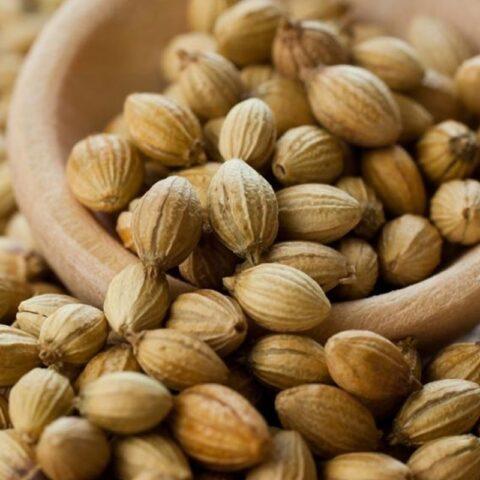
Raw materials are collected when 60-70% of the grains are ripe
How to dry cilantro seeds:
- The above-ground part of the plant, along with the umbrellas, is carefully cut off with a sharp knife to reduce the loss of raw materials.
- The stems are placed in cardboard boxes, caps down. Cilantro is transferred to the attic or any other room where there is good air ventilation and the temperature remains high during the day.
- Bunches are formed from the stems and hung with their hats down. A cloth is spread under the plantation.
- During the drying process, the cilantro seeds will fall onto the litter. It takes at least two weeks for the raw material to dry completely.
- After the specified time, the caps are additionally rubbed to collect the remains.
The collected raw materials are sifted. The grass seeds are ready to be used for their intended purpose in culinary recipes.
How to store it correctly
Immediately after completing the procedure, it is not recommended to pack cilantro for storage. It is necessary to leave the grass in the air so that any residual moisture evaporates.
Dried cilantro is best stored in a ceramic (glass) container. In such containers, the workpiece will not suffer from temperature changes. As a last resort, you can use canvas bags.
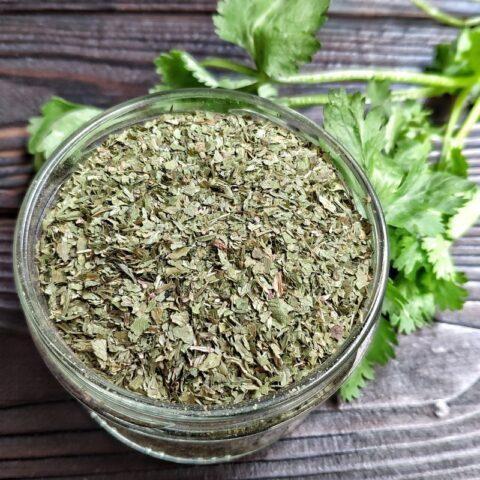
Dried cilantro is stored in a cool, dark room, away from direct sunlight.
If during this time stains appear on the raw material, it changes color or aroma, it is better to dispose of the grass.
Use in cooking
Regardless of how cilantro was dried, it has a bitter aftertaste and a thick, spicy aroma.
How to use dried cilantro in cooking:
- a pinch of seasoning is added to first courses, giving it a rich taste;
- Whole branches are put into marinades for meat. This makes them easier to catch and remove during cooking;
- In second courses (kebabs, beef, lamb), the preparation is introduced at the end of cooking.
Cilantro goes well with gravies and tomato sauces. It is served with adjika.
When using spices in food, the main thing is to add cilantro in small quantities.
Contraindications for use
No matter how useful the seasoning is, it has a number of contraindications for use. When to stop eating cilantro:
- Two weeks before surgery. Cilantro herb significantly reduces blood sugar. This may adversely affect the patient's condition during surgery;
- Dried cilantro can cause allergies. It appears in people suffering from reactions to parsley, dill and other herbs.
- Diabetics should use cilantro with caution after drying. To avoid critical consequences, it is recommended to carefully monitor blood sugar levels.
- No one has conducted research into how cilantro affects a woman and fetus during pregnancy. It is also not recommended to use the spice during lactation.
People suffering from hypotension can include cilantro in their diet after drying. But it should be remembered that it lowers blood pressure.
Conclusion
There are several ways to dry cilantro at home. Each of them has its own subtleties. The main thing is to properly prepare the raw materials for drying, then monitor the condition of the spice. If dark spots appear on the leaves, they have changed color or aroma, such coriander is not suitable for further storage.The herb will do more harm than good.


